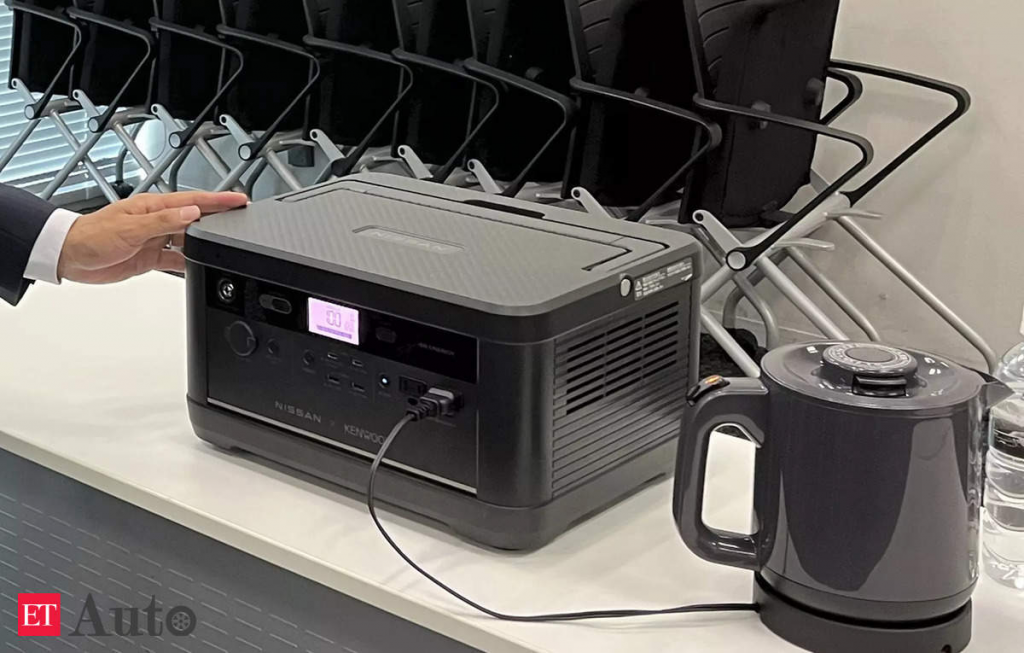Nissan, a Japanese carmaker, is addressing the issue of electronic waste and environmental sustainability in a novel way. Nissan is turning outdated batteries from its well-known Leaf electric vehicles (EVs) into portable power sources, according to a recent ABC News piece. These recycled batteries are slated to provide vital emergency power during risky crisis situations.
Nissan deserves praise for its dedication to sustainability, especially in light of the rising popularity of electric vehicles and the ultimate decommissioning of their batteries. The business realized the latent potential in the batteries that continue to function long after the vehicles themselves stop working after realizing there were over 650,000 Leaf EVs on the road.
To transform these discarded batteries into useful power sources, Nissan has partnered with electronics manufacturer JVCKenwood Corp. and lithium-ion battery system specialist 4R Energy Corp. These collaboration efforts have resulted in the creation of portable power sources that are now available for purchase in Japan at a price of 170,500 yen ($1,170).

What’s impressive about these power sources is their efficiency. As reported by ABC News, each power source weighs 4.4 kilograms (32 pounds) and requires only two battery modules, while a single Leaf EV contains a total of 48 modules. This means there’s a vast potential to repurpose numerous retired EV batteries, reducing electronic waste and enhancing sustainability.
Balakumar Balasingam, an associate professor of electrical and computer engineering at the University of Windsor, praised Nissan’s initiative, highlighting that retired EV batteries still retain significant energy capacity even after they reach an 80 percent charge limit. These batteries can find new life in various energy storage applications, preventing premature recycling and contributing to long-term sustainability.
Nissan’s dedication to sustainability doesn’t stop here. The company has a track record of innovative solutions, including reducing the use of rare earth elements in its EVs and recycling motors to recover these valuable materials. Additionally, Nissan has collaborated with Waseda University to develop a more efficient method for recovering rare earth materials from old motors, achieving impressive results.

Furthermore, Nissan has achieved great advancements in the field of electric vehicles. The company aims to put an end to the development of all internal combustion engines and has worked with NASA to create ultra-efficient electric car batteries that can be charged in just 15 minutes.
Nissan is a trailblazing force in the automotive sector thanks to its focus to sustainability, R&D, and innovation. Nissan is addressing global problems and assuring its continued competitiveness in the changing automotive industry by reusing obsolete EV batteries and investigating cutting-edge technology.


